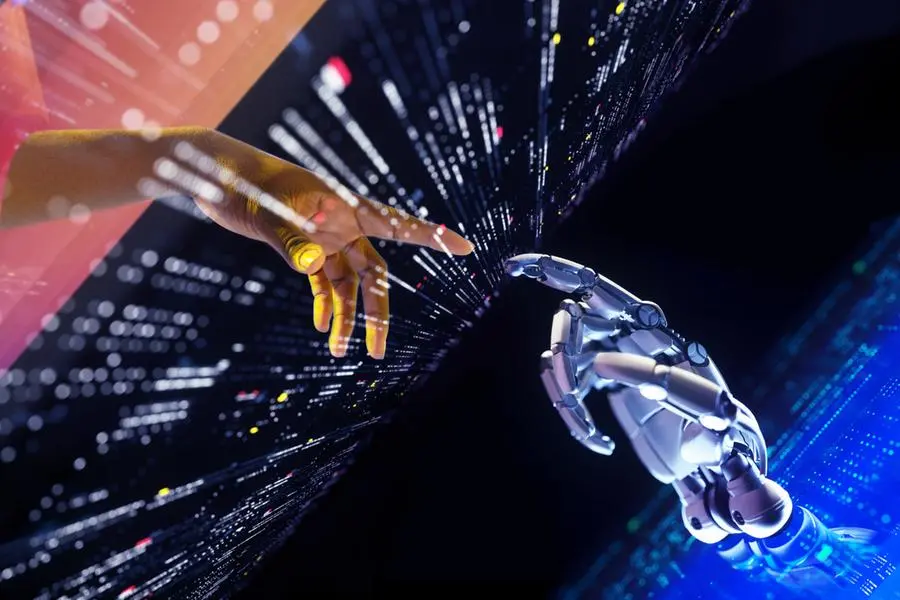PHOTO
The impact of new technology, including machine learning and artificial intelligence (AI) could make several jobs obsolete while those remaining will need an upgrading of skills, according to experts.
“Several studies, such as The Future of Jobs Report 2023 by the World Economic Forum and surveys conducted by LinkedIn, underscore the transformative impact of new and frontier technologies, alongside the expansion of digital access, across industries,” said Dr. Munir Majdalawieh, Department Chair of Information Systems and Technology Management at Zayed University.
“While these trends promise significant advancements, they also raise concerns about potential job displacement, particularly in routine and repetitive tasks susceptible to automation, such as administrative roles and manual labour.”
However, he said that despite the fears of some jobs becoming obsolete, the overall effect will likely be one of job growth.
“The evolving landscape of technology is expected to generate new opportunities and demand for roles that require advanced technical skills and creativity, such as data analysts, cybersecurity experts, and AI specialists,” he said. “Additionally, there will be a growing need for individuals who can bridge the gap between technology and various industries, such as digital transformation consultants and technology integration specialists.”
Soft skills important
Khaled AlWazani, Associate Professor of Public Policy, Mohammed bin Rashid College of Government said while he understand Huang’s point, he doesn’t fully agree with it. “I understand where he is coming from,” he said. “Now AI is solving the issues of learning computer and doing programming but we need people who will study the structure of the human being. if you know biology, you can do more programing with AI and machines.”
However, he said studying just biology was not recommended. “According to me, you don’t tell people what to study,” he said. “People should study whatever they are interested in. However, they shouldn’t just study for a certification. They should learn the topics and hone the soft skills needed to succeed for the future.”
He said he believed there were three skills that all future graduates require. “Language, digital skills and most importantly communication skills are the most important for the future generations,” he said. “If you want to live in the future, you need to know how to communicate with not only people but also machines, AI and media.”
While speaking at the World Government Summit (WGS) earlier this month, the chief of International Monetary Fund (IMF) revealed that future jobs will be hit by a “tsunami” of AI. “Roughly 40 per cent of jobs over the next few years will be exposed to artificial intelligence,” said Kristalina Georgieva. “This is like a tsunami hitting the labor market. Some jobs will disappear altogether, jobs we don’t know will exist will come and some jobs will be diminished.”
Life sciences
However, a top technology expert speaking at the same summit said that despite all the discussion about AI and technology, the future of jobs could lie in the life sciences. Jensen Huang, Founder and CEO of software company NVIDIA, said he believed the future of jobs was not all tech.
“One of the most complex fields of science is the understanding of human biology,” he said. “Not only is it complicated because it is so diverse but it is incredibly impactful.”
Huang was responding to a question on what courses future generations should major in by Omar Al Olama, UAE’s Minister of State for Artificial Intelligence, Digital Economy and Remote Work Applications.
“Almost 10 or 15 years ago, everyone sitting in a chair like this would have told you that it is imperative your children learn computer science and that everybody should learn how to program,” he said. “But now, everybody in the world is a programmer. Every year, our technology gets better but life science is sporadic. The technology to turn life science to life engineering is upon us. I hope this is going to start a whole generation of people who enjoy working with proteins, chemicals, enzymes and materials. They will engineer these amazing things that are more energy efficient, lightweight and sustainable.”
Copyright © 2022 Khaleej Times. All Rights Reserved. Provided by SyndiGate Media Inc. (Syndigate.info).




















